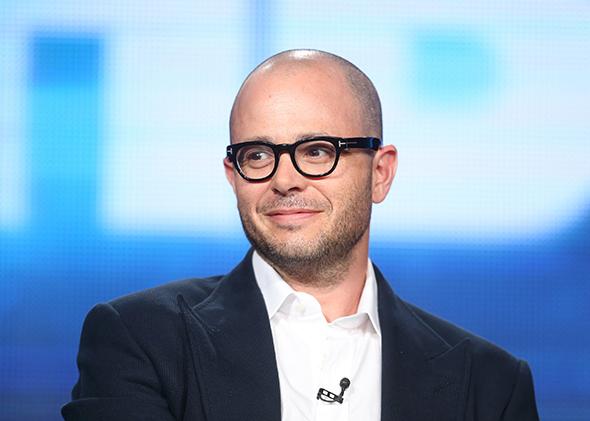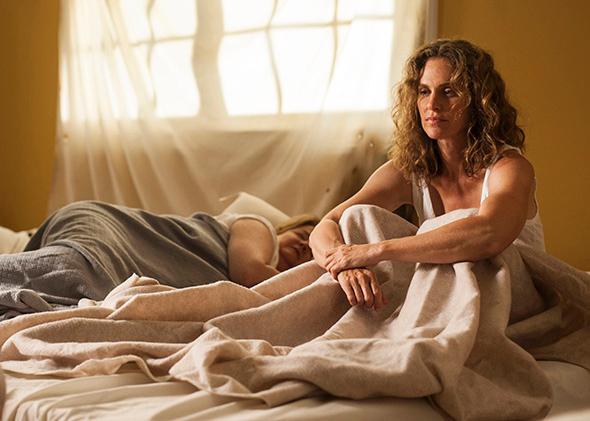It’s been a long day. You’re overwhelmed, you’re stressed, you’re sad. Something’s not quite right in your personal life, something went wrong at work, something awful is in the news. You’re holding it together though—and then you stub your toe. It is suddenly too much. You groan, tear up, throw a tantrum. It’s so stupid! It’s just your toe! But it’s the niggling, banal, detail that momentarily broke you.
Every single character on HBO’s new drama The Leftovers, premiering Sunday, is perpetually on the brink of this sort of breakdown, the release that is barely any release at all. They have good reason. Three years ago in the world of the show, 2 percent of the Earth’s population just vanished, and nobody knows why. The “Sudden Departure,” as it’s known, might have been the rapture, but it took Gary Busey, nonbelievers, sinners, murderers, and pedophiles with just as much frequency as it took children, devoted parents, lovely friends, good Samaritans, and the Pope. Life’s meaning, life’s possibility, life’s very continuation are all newly fraught and fragile. Everyone is on edge—and their jagged, frustrated funk is contagious. The Leftovers will make you feel like you just stubbed your toe after a very bad day, a credit to the show that makes for some tough-going television. Every time I misplaced my remote while watching, I wanted to break something. Or flip to a sitcom and remember that laughter is real.
The Leftovers is based on Tom Perrotta’s novel of the same name and has been adapted for television by Lost’s Damon Lindelof. Set in the town of Mapleton, New York, the series traces a scattered and shattered family dealing with the repercussions of the Sudden Departure. Kevin Garvey (Justin Theroux), the police chief, is an angry, lonely father, taut with barely-contained stress—no one has ever needed a massage more. His son Tom (Chris Zylka) is on the West Coast, working for Holy Wayne, a popular and perhaps charlatan spiritualist who claims he can hug the pain out of people. Kevin’s daughter Jill (Margaret Qualley) lives with him, but he barely tries to rein her in as she experiments with sex, drugs, and anomie. His wife Laurie (Amy Brenneman) has joined the Guilty Remnant, a rapidly expanding religious group, all of whom have left their families, wear all white, smoke constantly, and never speak. (Brenneman, who has no lines through the first five episodes, does excellent work grappling with this very novelistic invention.) Surrounding the Garveys are, among others, a woman who lost her entire family in the departure, a minister hell-bent on proving the event was not the rapture by publishing the departed’s sins, a pack of rabid dogs, and a looming possibility that the tension between the town and the Guilty Remnant will become violent.

Photo by Frederick M. Brown/Getty Images
The novel, without exactly being a laugh a minute, skips from character to character in a close third-person narration that foregrounds the banalities and absurdities of suburban life, as they play out against the backdrop of, possibly, the end of days. For a book about a traumatized and grieving human race, it has a pretty light touch. But Lindelof eschews Perrotta’s suburbia satire for the unrelentingly bleak stuff, resulting in some tremendously moving scenes and hardly any respite. (The third episode in particular, about the aforementioned preacher, felt like a very loose adaptation of the Book of Job.)
The Leftovers is overwhelmingly, existentially serious, without succumbing to the relentlessly violent and masculine clichés of so much “serious” prestige TV. It is a vast ensemble show, loosely orbiting around a broken family trying to navigate an apocalyptic world in which the apocalypse is as mystifying and incomplete as everything that came before. It has more in common with AMC’s The Walking Dead, another show that springs from a sci-fi-flavored catastrophe and proceeds as grimly and grittily as possible, than it does other HBO dramas. But while The Leftovers is in almost every particular better than the immensely popular The Walking Dead, it also has none of that show’s cathartic, zombie-killing release. It is hard to imagine a show less designed for binge-watching than The Leftovers; in the case of this show, such an activity would be more aptly described as binging spiritual despair.
Those familiar with Lost will recognize some of Lindelof’s trademarks—flashbacks, specific character focused episodes, unexplained slightly supernatural incidents that do not exist in the book, and, yes, a huge unsolved mystery. The novel never explains the Sudden Departure. Lindelof, however, has promised that he will answer this question for the show. I am totally riveted by Lindelof’s blockbuster-grade repetition compulsion—he has written about how traumatic he found the response to the Lost finale, and so has decided to … do it all over again, taking on another series that hinges on a giant metaphysical conundrum—but I am not at all convinced The Leftovers needs to answer this question any more than the novel did.
The Leftovers is unique for a show about humanity’s near ruin: Its characters are not special. They are not presidents or geniuses or mystics. They are not even distinguished by their survival: 98 percent of the world survived. They are regular people, trying to adjust to something truly mysterious, and the show makes that pain and frustration exceptionally palpable. In the first episode, Kevin watches a congressional hearing in which congressmen unhelpfully ream scientists for their cluelessness, as though if they yell loud enough, an explanation will materialize. It won’t. The unknowability of the situation is the whole, horrible point. Why did it happen? Will it happen again? There are no answers. Really. No, really. Lindelof should let himself off the hook: The Leftovers already hurts enough.
